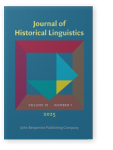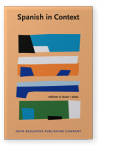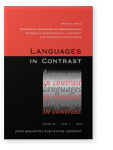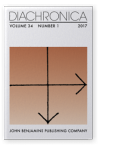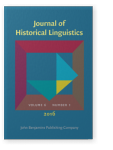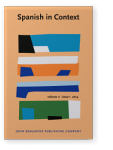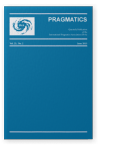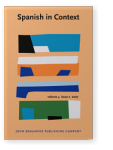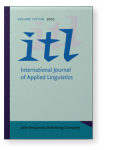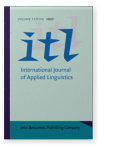José Luis Blas Arroyo
List of John Benjamins publications for which José Luis Blas Arroyo plays a role.
2023 Individual variation and frequency change in Early Modern Spanish: Alignment and intra-speaker (in)stability in a corpus of 18th century ego-documents Journal of Historical Linguistics 15:1, pp. 1–43 | Article
Based on a corpus of private correspondence written by twelve influential political and cultural figures in eighteenth-century Spain, this article discusses several hypotheses about the role of individual variation in language change. The study analyses five variables undergoing change in early… read more
2020 “Madrit nos roba”: Contacto de lenguas, variación e ideología en el discurso político catalán Spanish in Context 17:1, pp. 30–57 | Article
A partir de una muestra compuesta por dieciséis políticos que tuvieron un destacado protagonismo en el reciente procés soberanista catalán, en el artículo se examinan las realizaciones de la consonante /d/ en posición final de palabra, y en particular, la variante vernácula más próxima a los… read more
2018 At the boundaries of linguistic convergence: Variation in presentational haber / haver-hi : A sociolinguistic comparative analysis of Spanish and Catalan grammars Extending the notion of near-synonymy: Studies in morphological, syntactic and pragmatic equivalence, Enghels, Renata (ed.), pp. 35–68 | Article
In this paper, we focus on an eventual convergence outcome (the pluralization of presentational haber/haver-hi) in the grammar of two Romance languages, Spanish and Catalan, which have been living side-by-side for centuries in Eastern Spain. Taking into account the sociolinguistic comparative… read more
2017 Competing modal periphrases in Spanish between the 16th and the 18th centuries: A diachronic variationist approach Diachronica 34:1, pp. 1–39 | Article
The history of Spanish modal constructions has been widely discussed in the literature, focusing primarily on the semantic differences between the available alternatives. This paper offers an innovative analysis of the evolution of these constructions by adopting a diachronic variationist… read more
2016 The rise and fall of a change from below in Early Modern Spanish: The periphrasis deber de + infinitive in texts of linguistic immediacy Journal of Historical Linguistics 6:1, pp. 1–31 | To be specified
This article deals with the patterns of variation and change undergone by a syntactic variable in Early Modern Spanish grammar, namely the alternation between deber ‘have to, must, should’ and deber de + infinitive ‘have to, must, should’ as a modal periphrasis. Based on a 1,500,000-word corpus… read more
2014 La alternancia deber/deber de + infinitivo en el siglo XVI: Factores condicionantes en un fenómeno de variación sintáctica a partir de un corpus epistolar Spanish in Context 11:1, pp. 76–96 | Article
Este estudio parte de la sorprendente falta de atención concedida por la lingüística hispánica a la explicación de un antiguo fenómeno de variación sintáctica: la alternancia entre perífrasis modales deber/deber de + infinitivo, durante siglos asociada a una oposición rígida entre valores… read more
2013 Constraint factors in the formulation of questions in conflictual discourse: An analysis of Spanish face-to-face election debates Pragmatics 23:2, pp. 187–213 | Article
This paper presents a study of the constraint factors that condition the form and functions of questions in a corpus composed of several face-to-face election debates that took place in Spain during different election campaigns. Some of these factors are of a distributional nature, such as the… read more
2007 El contacto de lenguas como factor de retención en procesos de variación y cambio lingüístico: Datos sobre el español en una comunidad bilingüe peninsular Spanish in Context 4:2, pp. 263–291 | Article
Con independencia de cuál sea el grado de protagonismo que concedamos a la interferencia en la configuración de las lenguas, en la bibliografía sobre el tema es recurrente la idea de que el contacto interlingüístico —en particular si es estable y prolongado en el tiempo— actúa favorablemente para… read more
